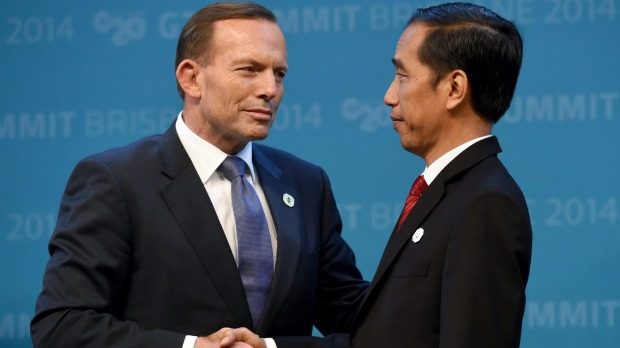Earlier this week, former Indonesia foreign minister Dr Marty Natalegawa was in Canberra for a high-level leadership forum at the Australian National University where he said Australia-Indonesia ties were now at a critical point.
He proposed a new framework between Indonesia and Australia to potentially handle future tensions in the bilateral relationship, noting that there must also be dialogue between the two countries on the controversial issue of asylum seeker boat turn backs (which Natalegawa described as incompatible with Indonesia and an irritant).
But frameworks and frank discussion aside, could it be that there is something more to the latest low point between the two on again, off again neighbours?
Former Australian Ambassador to Jakarta Bill Farmer, who spoke alongside Natalegawa at the ANU forum, thinks that there is a complexity inherent in the relationship that wasn’t there under former Indonesian leader President Suharto.
“We’ve seen over a 10-year period a vast change in the ways that our two countries have dealt with each other,” he tells ANU Indonesia expert Greg Fealy in a 14 minute video interview.
“Australia’s gone from dealing with the authoritarian regime of President Suharto, where essentially if President Suharto was onside, everything else fell into place.
“Now we have two messy, vigorous, robust democracies with anyone from the most intelligent to the lamest ratbag being able to say what they like and that inevitably makes things a lot more complicated.”
In addition to the complexities, the relationship is also susceptible to the personalities of the key players; particularly President Joko ‘Jokowi’ Widodo who Farmer says “does not seem to be as interested in international issues” as his predecessor Susilo Bambang Yudhoyono.
In the interview Farmer and Fealy also discuss the reaction to the execution of two Australians in Indonesia for drug smuggling, whether it would have been different if they were executed in the United States, the recalling of the Australian Ambassador, and whether there is hope for the relationship’s future.
“When I was ambassador I was paid to be optimistic as well as realistic,” says Farmer. “Now I do it for nothing.”
Watch the full interview in the player above.
Are Australia-Indonesia relations at their lowest point? If not, when were they? And how can the relationship get back on track?
 Facebook
Facebook  Twitter
Twitter  Soundcloud
Soundcloud  Youtube
Youtube  Rss
Rss 